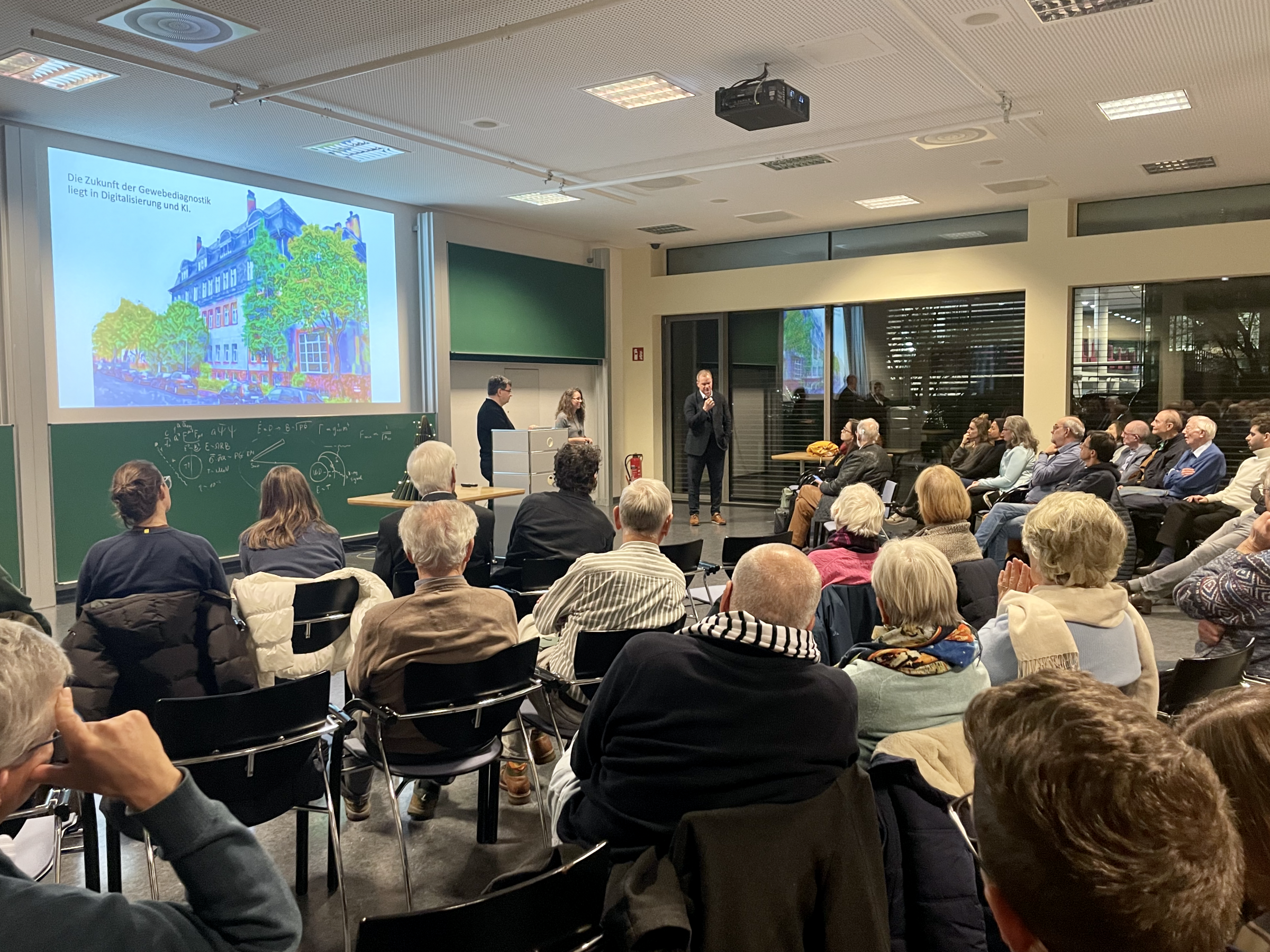November 29, 2024
Precision Medicine and AI
Insights into the Future of Tissue Diagnostics at the FIAS Forum
On the evening of November 28th, the Frankfurt Institute for Advanced Studies (FIAS) hosted a distinguished lecture exploring the intersection of modern pathology and artificial intelligence. Under the title "Precision Medicine and the Use of AI in Tissue Diagnostics," Prof. Dr. Wild and Dr. Flinner offered fascinating insights into the rapid developments within this ever-evolving medical field.
Prof. Dr. Wild opened the evening with an engaging overview of the work of pathologists in 2024. He highlighted common misconceptions about pathology, explaining in detail the differences between pathology and forensic medicine—two disciplines that are often confused. His main focus, however, was on the everyday processes in pathology. For example, he described how tissue samples are often taken in the operating room and need to be analyzed within minutes to provide surgeons with crucial information for quick decisions.
Modern pathology, he explained, is no longer limited to analyzing tissue sections under a microscope. Increasingly, data from DNA and RNA sequencing are integrated into diagnostics, enhancing the precision of findings.
He also discussed the growing role of digitalization in the daily work of pathologists. Microscopic images, for instance, are now scanned upon capture and stored in databases. Combined with microbiological data, this allows for treatment recommendations and the identification of suitable medications in record time.
Artificial Intelligence as an Assistant, Not a Replacement
Dr. Flinner took over for the second part of the evening, demonstrating how artificial intelligence can revolutionize pathology. Her presentation emphasized the supportive role of AI: “AI will not replace physicians but will simplify and enhance their processes.” She also provided an accessible introduction to how AI systems are trained and the potential pitfalls to avoid, which was especially helpful for attendees less familiar with the subject.
Dr. Flinner went on to highlight several practical applications of AI that could make diagnostics both more precise and efficient in the future.
One particularly impressive example was the use of AI for pre-sorting tissue samples. During an operation, the AI analyzes tissue sections and presents pathologists with the images most likely to indicate a positive diagnosis first. This significantly reduces the waiting time for surgical teams, as positive findings can be identified more quickly. Other applications include support in identifying rare cases, determining the fat content in donor kidneys, or providing a second opinion to prevent misdiagnoses, which, while rare, can have severe consequences.
The Digital Future of Medicine
The event underscored not only how far the digitalization of pathology has come but also how much potential remains untapped. The speakers highlighted the importance of interdisciplinary approaches that combine medical expertise with innovative technologies. They also showcased collaborative projects with FIAS research groups, whose expertise in neural networks and computing creates valuable synergies.
The audience—comprising scientists, students, and interested laypeople—seized the opportunity for a lively discussion. This exchange of ideas continued well after the talks, over wine and pretzels in the cozy setting of the FIAS Faculty Club.
